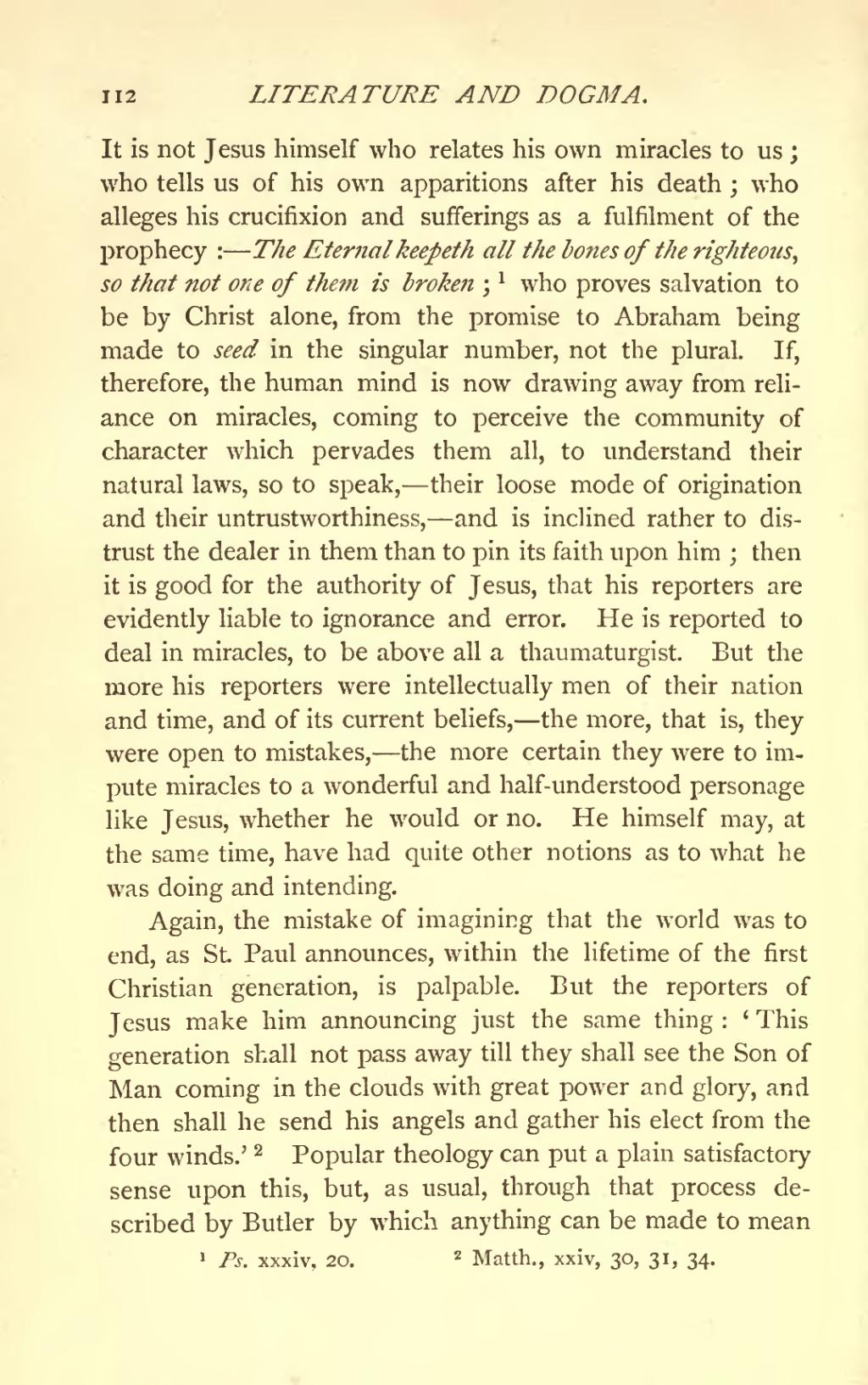It is not Jesus himself who relates his own miracles to us; who tells us of his own apparitions after his death; who alleges his crucifixion and sufferings as a fulfilment of the prophecy:—The Eternal keepeth all the bones of the righteous, so that not one of them is broken;[1] who proves salvation to be by Christ alone, from the promise to Abraham being made to seed in the singular number, not the plural. If, therefore, the human mind is now drawing away from reliance on miracles, coming to perceive the community of character which pervades them all, to understand their natural laws, so to speak,—their loose mode of origination and their untrustworthiness,—and is inclined rather to distrust the dealer in them than to pin its faith upon him; then it is good for the authority of Jesus, that his reporters are evidently liable to ignorance and error. He is reported to deal in miracles, to be above all a thaumaturgist. But the more his reporters were intellectually men of their nation and time, and of its current beliefs,—the more, that is, they were open to mistakes,—the more certain they were to impute miracles to a wonderful and half-understood personage like Jesus, whether he would or no. He himself may, at the same time, have had quite other notions as to what he was doing and intending.
Again, the mistake of imagining that the world was to end, as St. Paul announces, within the lifetime of the first Christian generation, is palpable. But the reporters of Jesus make him announcing just the same thing: 'This generation shall not pass away till they shall see the Son of Man coming in the clouds with great power and glory, and then shall he send his angels and gather his elect from the four winds.'[2] Popular theology can put a plain satisfactory sense upon this, but, as usual, through that process described by Butler by which anything can be made to mean
- ↑ Ps. xxxiv, 20.
- ↑ Matth., xxiv, 30, 31, 34.
